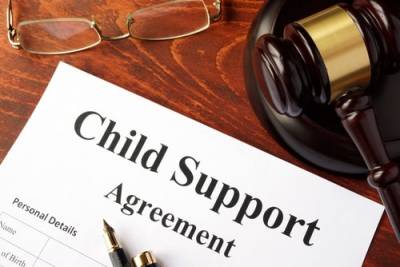How Are Child Support Payments Regulated?
 Divorces in which children are involved require legal assistance in a different sense than other divorce cases. Most parents do not come to a custody decision without some disagreements. It is uncommon for both parents to share equal custody of their children. One parent is named the “custodial parent” since the child lives primarily under their roof. The other parent is known as the “non-custodial parent”. The non-custodial parent does not pay for things such as groceries, clothes, or the gas needed to drive the child around every day, they are often required to provide the custodial parent with a set amount of money on a monthly basis in order to compensate for these expenses. These payment amounts are determined by a variety of factors. These include income, bonuses, properties owned, and other forms of financial value owned by both parents. Continue reading to learn how child support payments are regulated based on each individual’s situation.
Divorces in which children are involved require legal assistance in a different sense than other divorce cases. Most parents do not come to a custody decision without some disagreements. It is uncommon for both parents to share equal custody of their children. One parent is named the “custodial parent” since the child lives primarily under their roof. The other parent is known as the “non-custodial parent”. The non-custodial parent does not pay for things such as groceries, clothes, or the gas needed to drive the child around every day, they are often required to provide the custodial parent with a set amount of money on a monthly basis in order to compensate for these expenses. These payment amounts are determined by a variety of factors. These include income, bonuses, properties owned, and other forms of financial value owned by both parents. Continue reading to learn how child support payments are regulated based on each individual’s situation.
Unique Solutions to Difficult Situations
Most parents do not have the “American dream job” that pays six figures and has them working 9 am to 5 pm Monday through Friday. In reality, Americans work a variety of different jobs resulting in numerous “gray areas” for child support payments. Some individuals have the child support payments deducted from their paycheck by their employer to avoid missed payments while others place the responsibility on their own shoulders on a month to month basis. Regardless of the method used, these payments are due monthly and legal action can be taken against anyone who withholds these funds. For those purposely withholding child support payments, their wages can be garnished. This means that the amount will be forcibly removed from their paycheck before the parent receives it, taking away their ability to miss or avoid payments.
Some employers have refused to withhold the child support amount from paychecks despite being ordered to by a court or requested by an employee. While this is not always the case, it is not uncommon. Under every state’s law, an employer must withhold the amount if ordered or requested to do so. If this is the case, the employer will receive a withholding notice notifying them of their obligation. If the employer still refuses to do so, they will be charged the amount personally.
Child support payments can be increasingly difficult for parents that have recently lost their job. While this situation may not be the fault of the unemployed parent, the finances are still owed each month. The best solution in cases like these is a request for a payment adjustment. Because child support payments are determined based on a parent’s income and financial state, it can be adjusted if the parent cannot afford to pay the original allotted amount. If this request is made, a court may require the individual to seek out an employment program to help truncate the amount of time spent paying a lower amount.
For those that are self-employed, regulating income is still possible. This will be done through the Internal Revenue Service. While it may not be possible to withhold income through their employer, there are other forms of withholding that exist. Liens are holds on property until the amount owed is paid. This can include revoking required licenses, securing liens on client payments or garnishing the parent’s bank account.
Contact a Kane County Divorce Attorney for Help
Child support payments are taken very seriously by the U.S. court system and our firm. We understand that many families depend on these finances and cannot raise their children without the help of their children’s second parent. Our experienced attorneys work with families throughout Northern Illinois to ensure that they receive the amount owed to them. Whether you are going through a divorce and need to officiate child support payments or are not receiving the child support payments you have been legally promised, contact a St. Charles, IL child support attorneys at 630-584-5550 for a free consultation.
Sources:
https://www.acf.hhs.gov/sites/default/files/programs/css/chapter5_0.pdf

 630-584-5550
630-584-5550







 630-584-5550
630-584-5550